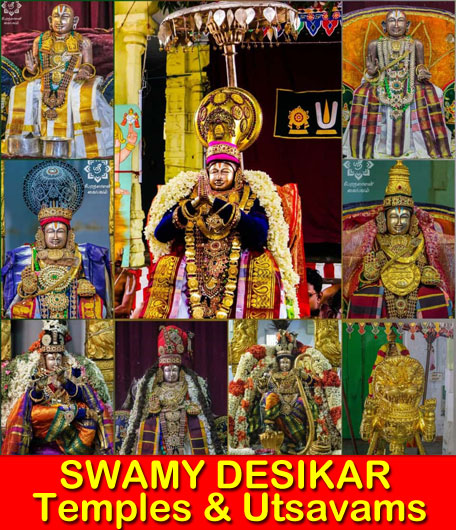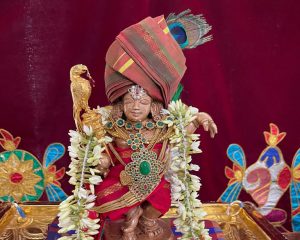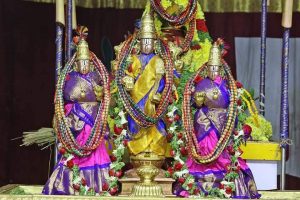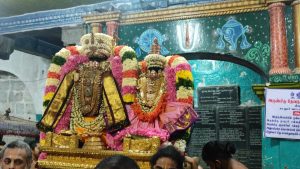Every state has its major festival and they celebrate it with much fanfare, joy and enthusiasm. Naturally, Tamil Nadu cannot be an exception when they celebrate Pongal every year in a fabulous manner. The renowned festival falls on 15th January this year, preceded by Bogi and followed by Mattu Pongal and Kanum Pongal. Pongal essentially is the festival that provides a flying start and a positive beginning to a cheerful year ahead for the people of the state. The well-known festival is celebrated for four-days at a stretch. Like every celebration has a story associated with it, Pongal is celebrated in essentially the month when turmeric, rice and sugarcare are harvested.
Pongal is celebrated as a means of showing the people’s gratitude to the Lord for harvest of the year. The literal meaning of term Pongal is “to boil” and is known with different names in various parts of the country. Interestingly, Pongal is also the name of a dish that is consumed as a part of the festival celebration. It is basically prepared with sweetened rice and lentils boiled together. During the coveted festival, the people will wear new clothes and prepare different types of food and share it with their neighbours, friends and relatives. The festival would be celebrated with aplomb in villages with the native people creating songs, resembling Pongal and Tamil Nadu’s cultural and traditional background, with the people singing the age-old Tamil songs in their own inimitable stye.
The Bhogi festival or the first day of Pongal is observed to celebrate the existence of Lord Indira, the god of rain. On this day, bonfire is made from wood and cow-dung cakes in which the unused items of the home are burnt. Thai Pongal would be celebrated on the second day. According to a unique custom, milk and rice are boiled together in an earthen pot and it is offered to the Sun god by tying a turmeric plant to it. Kolam at the entrance of the home are also designed on this day. Mattu Pongal would be celebrated on the third day by feeding the cows and their holiness with reverence. Importantly, cow is ornamented on this fruitful day with garlands, bells and sheaves of corn before worshipping it with folded hands.
On the fourth day, Kaanum Pongal would take place and this would be treated as concluding day of the festival. On this day, the house-wives would perform a special kind of ritual. According to the custom, the left-over of the sweet pongal are placed on a turmeric leaf in the courtyard. The devotees from various parts of Tamil Nadu, especially from remote parts of the state would throng the Marina Beach in Chennai on this day as a mark of respect and announcement that the festival has come to an end for that year. It is also looked at as a way of thanking god for harvest of the season.
Pongal is considered as an auspicious occasion to embark on new ventures by the entrepreneurs, similar to Muhrat Trading during Diwali festival in Maharashtra. Since Pongal is treated as a major festival for the farmers, they would initiate measures to maximise their output on the agricutural fields. A large number of people would prefer to conduct their family marriages after Pongal with a clear-cut conviction that “Thai Pirandal Vazhi Pirakkukum” (After Pongal, the beginning will be good). The job-seekers and traders firmly believe that their prospects would be better after the advent of Pongal festival.
Pongal is celebrated as Bhogali Bihu in Assam, while in Uttar Pradesh it is popular as Kicheri. In Punjab, the devotees would love to address it as Lorhi, whereas in West Bengal and Bihar, the popular festival is called as Maker Sankranti. Pongal is also celebrated internationally. It is widely appealing to the people of South East Asia, Africa, Oceania, Gulf, Europe and U.S. In Korea, they would proudly address it as Chusok, in Japan, it is famous in the name of Tori no Ichi and in Sri Lanka it is popular as Ulavar Thirunaal.
The festival in general, augurs well for the people all over the world. The Prime Minister Narendra Modi would greet the people of Tamil Nadu on the happy occasion in Tamil with, “Pongal Vaizthukal”, as the saying goes, “Thai Pirandal Vazhi Pirakkum(People believe that their obstacles will be removed and prosperous time ahead of them after Pongal). Jallikattu is celebrated in Tamil Nadu during pongal festival.
K.V. Venugopal, Chennai








